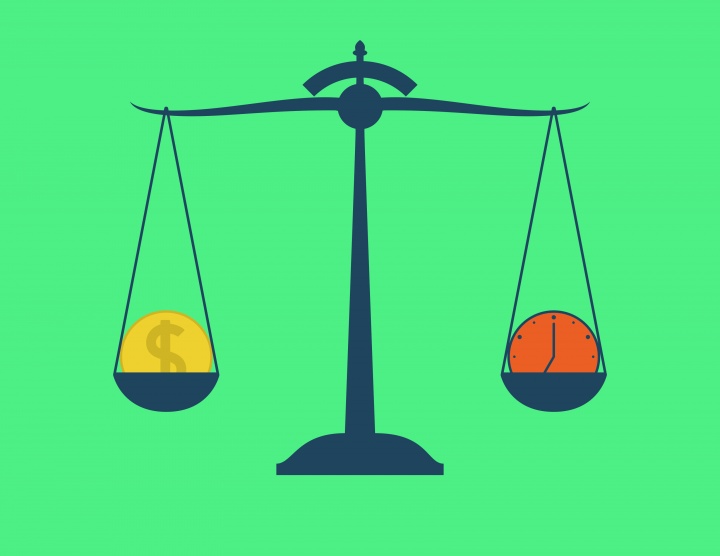Dear Readers
Summer 2018

In college I took an entry-level economics class where I remember the professor explaining the concept of opportunity cost, a key idea in economics. Surprisingly, that lesson has stuck with me through the years.
As I learned, opportunity cost is essentially the potential benefits or options you give up when you choose a specific action. For example, after you graduate from high school, you have the choice to start working or go to college (in simplified terms). If you decide to go to college, the opportunity cost is the wages you could have earned working full time for the number of years you are in college.
Opportunity cost is important because we often don’t think of everything we’re giving up when we make decisions. It’s easy to see what we will gain by choosing something we want, but not always easy to see the potential gains we’re foregoing by making that choice. For me, it’s easy to let time slip by while watching a show or reading a book, and not think until later whether that was the best use of my time, or even if that was really how I wanted to spend it.
Economist Dan Ariely puts it this way: “The problem is that thinking of opportunity costs is very tough. Every time you buy a cup of coffee, what are you giving up? It’s unclear. In fact, a few years ago, we went to a Toyota dealership and asked, ‘If you’re going to buy this car today, what are you not going to be able to do?’ And you know what? People had no answer. Why? Because they never thought about it. So we pushed, and pushed. Something has got to give. And the most common answer was, if I buy this Toyota, it can’t be a Honda. People were substituting in the same product category, in the same time frame, instead of saying something like, I’m giving up two weeks of vacation over the next two years, or 700 lattes, and so on” (www.thinkforwardinitiative.com/stories/the-question-of-money).
My professor mentioned that there was an old economist (I don’t remember the name) who believed we might someday all have opportunity cost meters around our necks or on our wrists, constantly measuring the cost of our choices. The meter could remind us how much we would be giving up, or how high the opportunity cost would be for each decision. This feels like it would be an overreach of our free will, perhaps, but I often wonder how my choices might change if that technology did exist. Would I be more mindful of how I spend my free time? Of how often I go out to eat? Of what time I go to bed?
Even if we aren’t always able to perfectly calculate the opportunity cost of a specific decision, especially in the moment, I’ve found it a helpful concept to consider. It reminds me of Psalm 90:12: “So teach us to number our days, that we may gain a heart of wisdom.” Barnes’ Notes on the Bible explains: “The prayer is, that God would instruct us to estimate our days aright: their number; the rapidity with which they pass away . . . the certainty that they must soon come to an end; their bearing on the future state of being . . . By taking a just account of life, that we may bring to it a heart truly wise, or act wisely in view of these facts. The prayer is, that God would enable us to form such an estimate of life, that we shall be truly wise; that we may be able to act ‘as if’ we saw the whole of life, or as we should do if we saw its end” (Barnes’ Notes on the Bible, “Psalm 90:12,” Biblehub.com).
With God’s help, we can all better see the hidden opportunity costs in life and make decisions with clarity, pursuing those things which are truly valuable and making the most of what we’ve been given.
Your friend,
Kourtney Kovanis, Managing editor | kourtney.kovanis@gmail.com

